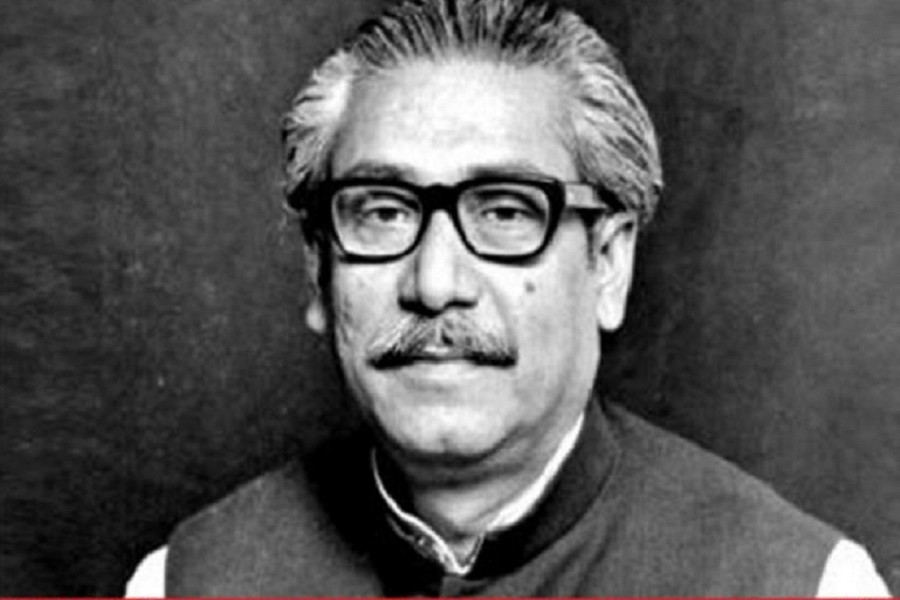Apparently, foreign policies of a state are designed to determine its interaction with other states and to adjust itself with the complex international milieu. The success of foreign policies of a country is mainly dependent on prudent diplomacy of its leadership whether it might have material capacities, geopolitical advantages, international institutional backing, sound socio-political structure, appealing political ideology and so on. Challenges and restraints of making foreign policy are relatively high for new states compared with mature states because the latter usually have established diplomatic relations, nurtured visions, and experienced political leadership.
From the inception of his leadership for the independent Bangladesh, Bangabandhu showed his diplomatic sagacity with a particularly cautious observation even in the midst of cold war. Further, he proclaimed, "I would like it (Bangladesh) to become the Switzerland of the East." The underlying belief of his intention that similar to Switzerland, Bangladesh wishes to maintain peace, to augment economic development, to promote tourism, and to preserve a neutral gesture to the polarised global politics.
While drafting the first ever constitution, Bangabandhu set up the bedrock of Bangladesh's foreign policy framework with his remarkable dictum "Friendship with all, malice towards none" echoing the second inaugural address of the late US president Abraham Lincoln. This maxim is still an inseparable part of the present Bangladesh for its engagement with nations for the protection of national interest as well as for guiding the global community to foster peace and harmony. The primary goals of Bangabandhu's foreign policy were to be in a big league of friendly countries, attain recognition for the newly independent country and ensure membership of international organisations.
Bangabandhu as the Prime Minster of Bangladesh paid various visits abroad to light up his country's image on the global stage. Bangabandhu further endeavoured to show to the world that Bangladesh was not under the predominance of its closest significant partner. Bangabandhu's another move took a remarkable shape when he brought Bangladesh into the non-aligned forum in 1973 that suggested a centre course between the western (capitalisistic and eastern (socialistic) alliances.
In February, 1974, Bangabandhu's participation in the Organisation of the Islamic Conference (OIC) marked a huge watershed in developing fraternity with the Muslim world. Soon, Bangladesh achieved its membership to the distinctive global associations like the UN, IMF, ADB, ILO, NAM, Commonwealth, OIC.
Bangabandhu was also successful to achieve the recognition for the new state from practically all nations. China was against the freedom movement of Bangladesh, favoured Pakistan, and stood by its stand for some time. Understanding the significance of China-Bangladesh relationship, Bangabandhu undertook intelligent diplomatic moves that eventually paid off.
Bangabandhu's diplomatic approach was integral to his vision to achieve his international strategies for the welfare of his people as well the rest of the world. He held the administration of the free Bangladesh for less than four years before he was killed by some misdirected army officers. Given the limited time available to him, he laid the foundation of international strategy for the nascent country. For more than forty years, Bangabandhu's vision and thoughts have been shaping Bangladesh's foreign policy.
We celebrate 2020 as "Mujib Borsho" to mark our Founding Father's birth centenary. Keeping the spirit of our foreign policy that was laid down by the Father of the Nation during his lifetime for consolidating global peace, harmony and inclusive development with the spirit of friendship towards all, Prime Minister Sheikh Hasina is making every effort in this regard.
Bashir Ahmed is the Professor of Government and Politics and the Provost, Sheikh Hasina Hall, Jahangirnagar University. [email protected]


